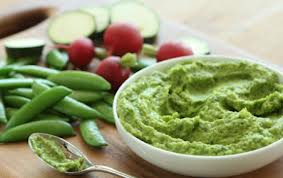Fish Oil vs. Flax Oil: Which is Best?
Fat is incredible for you!
Yup, I said it — dietary fat is amazing for you.
The key, here, is the TYPE of fat … with that statement above, it should be noted that not ALL fats are amazing for you. In fact, some may ultimately kill you. But let’s focus on those that may help reduce the risk of disease and really just live optimally.
Omega-3 Fats
It shouldn’t come as a surprise to hear that omega-3’s are fantastic for you.
In fact, they’re called essential fatty acids for a reason …
…this means the body doesn’t make them, so they instead omega 3 fats must come from the diet.
But this doesn’t mean there isn’t confusion surrounding omega-3’s.
We got this email the other day:
***************************
"Hey Chris and Kara — I know you’re busy, but I was hoping you could answer this quick question for me. Should I use flax oil OR fish oil? Do I need to supplement or can I get them through the diet?" Mary from Seattle
***************************
First and foremost, where do you get omega-3 fats?
Cold water, fatty fish are the best — wild salmon and tuna are 2 of the more common fish that offer a nice does of healthy fat.
And then there are many non meat based foods that provide omega-3’s too.
Flax seed and flax oil. Nuts. Hemp and chia seeds. And even some leafy veggies.
But within that omega-3 umbrella, there are still differences between different sources. You see, there are a few different omega-3 fats, which are abbreviated:
EPA
DHA
ALA
The first two, EPA and DHA, come directly from fish. ALA comes from all the vegetarian sources listed above. Now, while they’ve all got their own unique qualities and are all fantastic, most of the data looking at omega-3 fats focuses on the 2 that come from fish (EPA and DHA).
And while it was once thought that eating enough of the one omega 3, ALA, was sufficient since it converted to the others, recent data suggests that conversion is VERY minimal (around 0.1%).
What does this mean in English?
To get EPA and DHA, you should eat fish regularly — the American Heart Association suggests eating at least 2 servings (up to 12 oz) per week. If you’re a vegetarian, that obviously wouldn’t work … and I would then turn to an algae source of DHA, which is available.
So to answer the original question — flax oil vs. fish oil — it shouldn’t be an either or thing, but instead an "in addition" thing — flax oil and flax seed are both good, but in a different way.
In addition, there is enough data, in our opinion, that suggests most would benefit from supplementing with a high quality fish oil as well — particularly those with a history of heart disease, lipid issues, etc.
…to be honest, even Ella takes DHA regularly for her tiny developing brain. At this rate, by the age of 2, she will likely be working for NASA and have balanced the budget for this country.
We use and recommend Nordic Naturals.
-
Diet Strategies: Sugar and Your Kids
This Halloween, Americans will shell out nearly $2 billion to stuff th
-
Can We Eat Too Much Healthy Fat?
We’re big fans of healthy fats. We recently talked a lot about the he
-
Diet Strategies: Fat Burning Metabolism
SPEED UP YOUR METABOLISMYou dont need to eat like a child to recapture
-
Diet Strategies: Weight Loss Drinks
Two hundred gallons. Thats the amount of liquid the average man guzzle
-
Go to Gym, Get Paid, Repeat
Dollar signs shrink your gut, according to a new Mayo Clinic study.
-
The Worlds Most Powerful Eating Strategies
Every nation has its weapons in the nutrition wars. For the Chinese, i
- DON'T MISS
- Exercise Plan to Increase Metabolism
- Burn Fat Faster
- Brain Benefits of Exercise
- Understand Your Metabolism
- Your Friends Can Make You Fat
- Abs Diet: Back Exercises
- Cure Your Snack Cravings in 10 Minutes
- Pro Athlete Dieting Tips:
- The Key to Looking Good at Your Wedding
- Diet Strategies: Increase Metabolism



